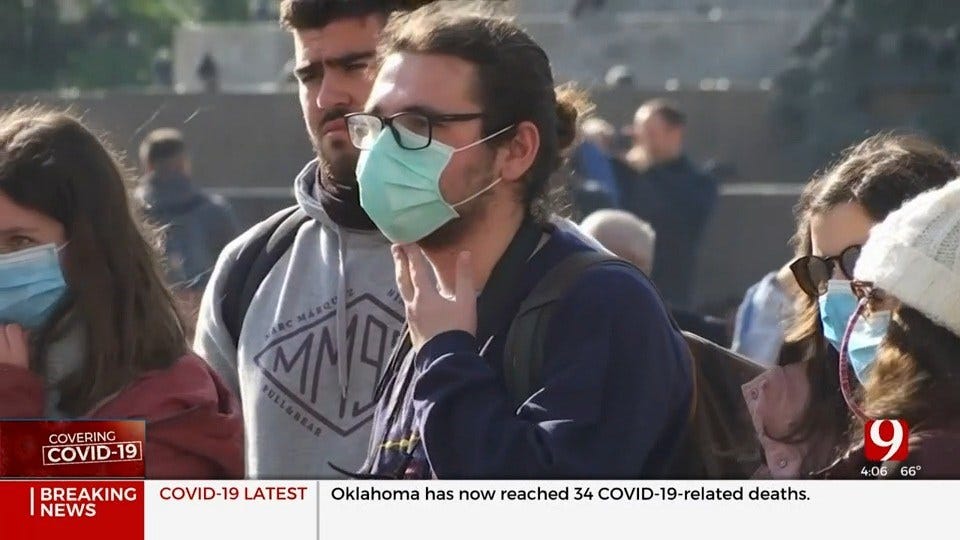Researchers Think Coronavirus Could Weaken In Higher Temperatures
Research from the Journal of Hospital Infection suggests COVID-19 will weaken in higher temperatures and help reduce transmission.Thursday, April 2nd 2020, 12:15 pm
Research from the Journal of Hospital Infection suggests COVID-19 will weaken in higher temperatures and help reduce transmission.
However, OU Medicine doctor, Dale Bratzler, said it’s too soon to tell if the virus will dissipate over the summer.
Many viruses, like the seasonal flu, begin to dispel in warmer and more humid climates.
"Nobody knows exactly why seasonal viruses have markedly reduced activity during the summer months,” Bratzler said.
Bratzler said there are many reasons viruses phase out during hotter months.
"You may actually be more healthy in the summer time,” Bratzler said.
Bratzler said people are exposed sun, which helps to produce vitamin D, which boosts people’s immune systems.
Humidity also plays a role, because viruses can't travel as far in wetter air.
"Virus spreads in water droplets which are heavier when the humidity higher so they don't travel as far, they fall faster,” Bratzler said.
Other studies show our lungs may not be as healthy in the wintertime.
"There is actually some evidence that in the winter months, your lung and airways produce less mucus,” Bratzler said.
Research from the Journal of Hospital Infection shows COVID-19 spreads four times faster in 40 degree climates, like in Italy, versus a 95 degree climate, like in Thailand.
"Where the air is cooler and air is dryer, the virus seems to be a faster spread,” Bratzler said.
Other research from the same study also suggests COVID-19 can remain infectious for longer on surfaces in colder temperatures.
"We just don't know yet if this virus will have the same seasonal characteristics like other viruses like say influenza. We just don't know,” Bratzler said.
Bratzler said people naturally social distance more in hotter temperatures, which helps to play a role in reduced virus transmission.
And, even if it does die out over the summer, there's no evidence yet that the virus won't return in the fall.
More Like This
April 24th, 2020
Top Headlines
December 14th, 2024
December 14th, 2024
December 14th, 2024
December 14th, 2024










